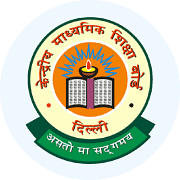Notes: Project Work | Social Studies & Pedagogy Paper 2 for CTET & TET Exams - CTET & State TET PDF Download
| Table of contents |

|
| Project in Education |

|
| Elements of an Authentic Project |

|
| Potential Challenges in Execution of Projects |

|
| Challenges and Precautions |

|
| Assessment of Project Work |

|
A project is a research assignment given to students, typically requiring more effort and independent work than a standard essay assignment. It involves students in fact-finding, analysis, and data gathering, either through library or internet research or empirical data collection. The goal of project work is to bridge the gap between academic learning and practical work skills.
Project in Education
In education, project work is a structured task designed to engage individuals or groups of learners in achieving specific learning objectives. As the famous Chinese proverb goes, "Tell me and I forget. Show me and I remember. Involve me and I understand." Project-based instructional strategies are rooted in the constructivist approach, influenced by psychologists and educators such as Lev Vygotsky, Jerome Bruner, Jean Piaget, and John Dewey. Students enjoy projects as they play an active role in choosing and planning, finding them fun, motivating, and challenging.
Types of Projects
Academic projects can be categorized into two types:
- Individual Projects: Involving a single student, these projects lack in developing adequate social skills.
- Group Projects: Involving a group of students, these projects foster a sense of belonging and social skills among learners.
Purpose of Project Work in Social Science
The purpose of project work in social science includes:
- Using it as an essential component of school-based evaluation.
- Sensitizing learners to changing societal needs and expectations.
- Making the learning process interesting, motivating, and participatory.
- Enhancing understanding of different concepts and principles in the subject.
Elements of an Authentic Project
The elements common in authentic projects, as discussed by psychologists like Dickinson et al, Katz and Chard, Martin and Baker, and Thomas, include:
- Student-centered and student-directed.
- Having a definite beginning, middle, and end.
- Meaningful content directly observable in students' environment.
- Real-world problems or investigations.
- Sensitivity to local culture and cultural appropriateness.
- Specific goals related to curriculum and school/board standards.
- Tangible products that can be shared with the intended audience.
- Connections between academics, life, and work skills.
- Opportunities for feedback and assessment from expert sources, fostering reflective thinking and student self-assessment.
Benefits of Project-Based Instruction
Research supports the inclusion of project-based learning in education, as it leads to high engagement, motivation, and achievement. Project-based instruction offers diverse learning opportunities, caters to individual learning styles, and prepares students for the workplace. It increases motivation, connects learning to reality, and promotes collaborative knowledge construction.
Way of Executing Project Work
Before starting a project, a framework should be outlined addressing the problem to be addressed, the ultimate purpose, and the project duration. Assessment should evaluate both the learning process and the final product. Teachers should identify specific skills and concepts to be learned, set clear academic goals, and align them with school and/or national standards. Cross-curricular project planning involves collaboration among teachers from various subject areas to demonstrate how knowledge and skills are interconnected.
Potential Challenges in Execution of Projects
- Projects may take longer than anticipated.
- Teachers often require significant preparation time for projects.
- Teachers with less experience using technology as a cognitive tool may have difficulty incorporating it into the projects.
- Non-traditional assessment may be unfamiliar to some teachers.
- Arranging parents and community members to be important parts of the project is not easy to arrange and can be time-consuming.
- Intensive staff development is required, teachers are not traditionally prepared to integrate content into real-world activities.
- Resources may not be readily available for many projects.
- Aligning project goals with curriculum goals can be difficult.
- Parents are not always supportive of projects.
Challenges and Precautions
Teachers may face challenges when incorporating technology into projects due to limited experience. Non-traditional assessments might be unfamiliar to some educators. Involving parents and community members in projects can be time-consuming. Intensive staff development is necessary as teachers may lack traditional preparation for integrating content into real-world activities. Resources may not always be readily available, and aligning project goals with curriculum objectives can be challenging. Additionally, not all parents may be supportive of projects.
Precautions to mitigate these challenges include ensuring basic curriculum content is covered before embarking on projects, maintaining alignment between instructional content and project activities, and tying the project's purpose to curriculum or performance standards. Providing adequate time for students to learn new skills or technologies and defining roles in collaborative projects can also help address challenges.
Assessment of Project Work
Assessing student performance on project work differs from traditional classwork assessment due to the varying nature of projects and timelines. Assessment serves multiple purposes, including focusing on achievement outcomes, diagnosing strengths and weaknesses, and identifying instructional goals and outcomes. Clear identification of instructional goals before starting a project helps both teachers and students understand what needs to be learned and how learning will be assessed.
|
61 videos|119 docs|77 tests
|
FAQs on Notes: Project Work - Social Studies & Pedagogy Paper 2 for CTET & TET Exams - CTET & State TET
| 1. What are the key elements of an authentic project? |  |
| 2. What are some potential challenges in the execution of projects? |  |
| 3. How can one overcome challenges in project work? |  |
| 4. How should project work be assessed? |  |
| 5. How can students ensure the authenticity of their projects? |  |
|
61 videos|119 docs|77 tests
|

|
Explore Courses for CTET & State TET exam
|

|












